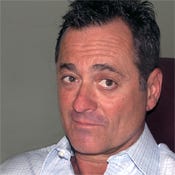Why No Ultrabook Pep Rally At IDF?
PC vendors expect Windows 8 Ultrabooks to reverse PC sales that are eroding to tablets. So why didn't Intel rally the developer troops to start placing component orders at IDF?


Intel's Tech Roadmap: Visual Tour
Intel's Tech Roadmap: Visual Tour (click image for larger view and for slideshow)
This is normally a nerve-wracking time of year for PC makers, because they have to place their bets on the upcoming holiday selling season. Bet too much, and they'll have to shed the overstock in January with profit-bleeding promotions. Bet too little, and their competitors will gladly fill the orders they can't.
Unlike last year, the PC vendors have some cool, innovative new systems lined up for this holiday season. As a group, the sleek, sexy Ultrabooks and all-in-one desktops--many of them touch-enabled for Windows 8--are far more compelling than last year's holiday lineup. In fact, the year-on-year improvement is greater this year than we've seen in a very long time.
With such alluring new products, you'd think that the PC vendors would be betting big on this year's holiday season. That's what they've done in years past. But this year, they're not. Many component vendors, that have been bracing since July for a rush of orders, say they are still waiting to hear from their customers. But the PC companies are holding off until the last possible minute to get the most time to gauge demand.
Indeed, the jitters are on steroids this year. Not too surprising, given the streak of lackluster sales and dire prophecies foretelling the death of the PC. There are confounding variables that make it difficult to say for sure just how much PC shipments have been weakened by the torrent of tablets. The teetering global economy is a major factor. Add to the list Microsoft's brain-dead decision to roll out Windows 8 in late October, which effectively quashed back-to-school sales as anyone who could wait to buy a new PC held off.
So we don't know how much tablets have been cannibalizing PC sales. What we do know is the new kids on the block are stealing revenue from the old guard.
With that as a backdrop, you would have expected Intel CEO Paul Otellini to deliver the pep talk of his career at this year's Intel Developer Forum (IDF). Maybe something like this: "Now, finally, we've got systems that address many of the shortcomings that the tablet phenomenon has exposed. So let's go out there and take back our market!" That might have helped.
But Otellini didn't say that. He didn't say anything at all. In fact, he didn't even kick off the conference as he normally does. He was sitting in the audience during the opening keynote.
Huh? What?
[ For another take, see Intel's Search For Relevance On Display At IDF. ]
Intel said that the decision to sit Otellini for the keynotes came a year ago. It is a developer conference, the company said, and the developers complained after last year's gathering that the agenda needed a reverse makeover. Lose the glitz and glamor, the surveys said, and get back to the nuts-and-bolts roots.
True, it's a technical conference. And it's always smart to give your audience what it wants. So if attendees want more nuts and bolts, then give them more nuts and bolts. But scratch the CEO from the lineup at this critical juncture? That's not nuts and bolts.
That's just nuts.
About the Author(s)
You May Also Like
How to Amplify DevOps with DevSecOps
May 22, 2024Generative AI: Use Cases and Risks in 2024
May 29, 2024Smart Service Management
June 4, 2024







